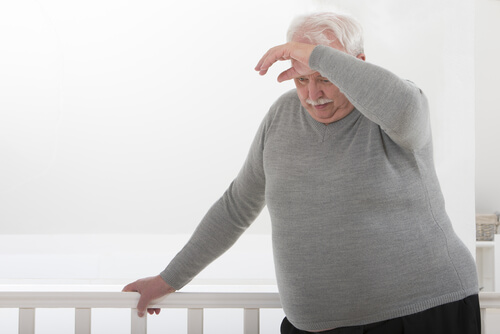
The term ‘obese’ is applied to people who have a Body Mass Index (BMI) of 30 -39.9. ‘Severely’ or ‘morbidly obese’ is a term given to those with a BMI of 40 or above. As of 2023, around 27% of adults in England are obese.
While the drive to reduce the discrimination and stigmatisation of overweight people has been beneficial, the medical dangers of being obese prevail. Obesity is increasing across all age groups, but in England, it is most common in people aged over 55.
Obesity in older people has an effect on their care, as many need specialist bariatric care to meet their needs. ‘Bariatric’ care is used to refer to the care of people who weigh 25 stone or more.
A survey carried out by carehome.co.uk in 2019 found that one in ten care home staff admitted to having been forced to turn away obese potential residents. This was because as the care home did not have the facilities, staffing or extra funds to accommodate their weight. However, there are many care homes and home care providers who can provide bariatric care.
What kind of support does bariatric care provide?
Hoisting
Many people in need of bariatric care struggle with mobility. This can be due to their weight and physical size, related reasons such as bed sores or amputations from diabetes, or unrelated reasons such as their age. They can need support to transfer to a wheelchair, shower chair or commode. They may also need support to change position if they are bedbound in order to prevent bed sores.
It is dangerous for care workers to manually lift people as it can cause them injury, so they will often use slide sheets, slings and hoists to move somebody safely. Some more advanced hoists have ceiling tracks. There is now training available that lets care workers use mannequins weighing up to 40 stone to practise handling them, safely.
Personal care
Personal care is support with tasks such as washing, dressing, shaving and going to the toilet. Some larger people need cream and talcum powder applied to their skin, which can also come under personal care. Hoisting and slide sheets may be necessary to support this, depending on the mobility of the person.
Care after bariatric surgery
Bariatric surgery is an umbrella term for several kinds of weight loss surgery. These can take from a few weeks to a few months to recover from. Recovery time depends on how invasive the surgery was, whether it was open or keyhole surgery, and at what rate the person heals.
As well as extra support with day to day living while they heal, the person can also be supported with their post-surgery diet plus any supplements and medication they may need.
This care can be delivered at home or the person may go into a care home for convalescence care.
Medication management
As well as administering medication for unrelated issues, bariatric care can include medication for illnesses caused by the person’s obesity. This could be help to manage insulin in a type 2 diabetic.
They may also need support with:
- Wearing an oxygen mask at night if they experience sleep apnoea
- Caring for wounds that arise due to diabetes, pressure ulcers or chaffing
Getting bariatric care at home
Many people in need of bariatric care have this care within their own home. This could be because they are younger, cannot find a care home locally that suits their needs or it’s simply their preference.
Bariatric care can be more expensive than other types of home care as it is often the case that two members of staff are needed to deliver personal care and use equipment safely. If you are thinking about getting bariatric care at home, you may need to think about making space for equipment such as a mobile hoist.
A care needs assessment will help you to gauge exactly what support you require and what equipment might be needed for this. You can request a free needs assessment from your local council.
Getting bariatric care in a care home
Some care homes now have specially designed bariatric rooms to meet the growing demand for bariatric care.
Specialist facilities can include:
- Stronger or heavy-duty beds, furniture, walking frames, commodes and shower chairs
- Wider doorways
- Wider bath with a door or bath hoist
- Ceiling hoists
- Medical equipment
You can search for care homes that offer bariatric care through the carehome.co.uk search feature, by filtering results under ‘Category or Facility’.
Find your ideal care home
- Explore a wide range of care options and facilities
- Read independent ratings and reviews
- Connect directly with care homes to book a tour and discuss your needs


